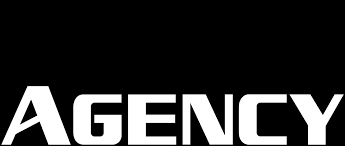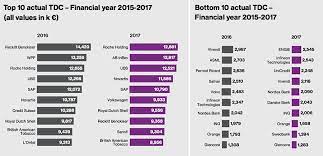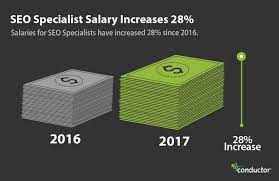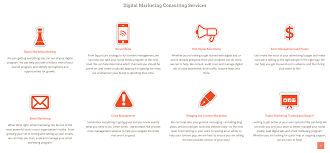Unlocking Opportunities: The Essential Guide to Landing Your Dream SEO Executive Job
The Role of an SEO Executive: Responsibilities and Skills
Search Engine Optimization (SEO) has become a crucial aspect of digital marketing, and businesses are constantly seeking skilled professionals to enhance their online presence. One such role is that of an SEO Executive, who plays a vital part in driving organic traffic to websites and improving search engine rankings.
Responsibilities of an SEO Executive:
- Conduct keyword research to identify target keywords
- Optimize website content, meta tags, and headings for search engines
- Analyze website performance using tools like Google Analytics and Search Console
- Implement on-page and off-page SEO strategies to improve website visibility
- Create and manage link building campaigns to increase domain authority
- Monitor search engine algorithms and stay updated on industry trends
- Generate regular reports on SEO performance metrics
Skills Required for an SEO Executive:
To excel in the role of an SEO Executive, certain skills are essential:
- Strong understanding of search engine algorithms and ranking factors
- Proficiency in keyword research tools like SEMrush or Ahrefs
- Excellent analytical skills to interpret data and draw actionable insights
- Good communication skills to collaborate with content creators, developers, and marketers
- Familiarity with HTML, CSS, and website CMS platforms like WordPress or Magento
- Creative thinking to devise innovative SEO strategies and solutions
- A passion for staying updated on the latest trends in SEO and digital marketing
In conclusion, the role of an SEO Executive is dynamic and challenging, requiring a blend of technical expertise, analytical skills, creativity, and continuous learning. By effectively implementing SEO strategies, an SEO Executive can significantly impact a company’s online visibility and success in the competitive digital landscape.
21 Frequently Asked Questions About the Role of an SEO Executive
- What is the job role of SEO?
- What does SEO mean job?
- Is SEO fun for jobs?
- Is SEO a job title?
- What does a SEO Specialist do?
- How do I apply for SEO positions?
- What qualifications do I need to be a SEO?
- What is the role of SEO expert?
- Is SEO Executive and digital marketing executive same?
- What is the salary of SEO marketing executive?
- What is SEO fresher?
- What is the qualification for SEO job?
- Is SEO analyst a good job?
- Is SEO a high paying job?
- How do I become an SEO executive?
- What is the work of SEO executive?
- What is your SEO salary?
- What is the minimum salary of SEO?
- Is SEO high paying?
- Is SEO a good Carrer?
- What is the highest salary of SEO executive?
What is the job role of SEO?
The job role of an SEO (Search Engine Optimization) Executive involves implementing strategies to improve a website’s visibility in search engine results. SEO Executives are responsible for conducting keyword research, optimizing website content, monitoring performance metrics, and staying updated on search engine algorithms. Their primary goal is to increase organic traffic to the website, enhance search engine rankings, and ultimately drive business growth through improved online presence. SEO Executives play a crucial role in helping businesses reach their target audience effectively and achieve success in the competitive digital landscape.
What does SEO mean job?
The term “SEO job” refers to a role in the field of Search Engine Optimization (SEO) where professionals are responsible for improving a website’s visibility on search engine results pages. SEO executives play a crucial role in implementing strategies to increase organic traffic, enhance search engine rankings, and drive online growth for businesses. Their tasks involve keyword research, content optimization, performance analysis, and staying updated on search engine algorithms to ensure the website’s relevance and visibility. A career in SEO job requires a deep understanding of digital marketing, analytical skills, creativity, and a passion for keeping up with industry trends to achieve successful outcomes in the competitive online landscape.
Is SEO fun for jobs?
When considering a career as an SEO Executive, many individuals wonder, “Is SEO fun for jobs?” The answer to this question largely depends on one’s interests and perspective. For those who enjoy the dynamic nature of digital marketing, the analytical challenge of optimizing websites for search engines, and the satisfaction of seeing tangible results in terms of increased organic traffic and improved search rankings, working as an SEO Executive can indeed be enjoyable. However, like any job, it also requires dedication, continuous learning, and the ability to adapt to evolving algorithms and best practices in the ever-changing realm of search engine optimization. Ultimately, finding joy in the intricacies of SEO work can make it a rewarding and fulfilling career choice for those passionate about digital marketing.
Is SEO a job title?
In the realm of digital marketing, “SEO” is not typically a standalone job title but rather a specialized skill set and area of expertise within various job roles. While there are positions like “SEO Specialist,” “SEO Analyst,” or “SEO Executive” that specifically focus on search engine optimization tasks, the term “SEO” itself is more commonly used to describe the practice of optimizing websites to improve their visibility in search engine results. Professionals with SEO skills may hold job titles that encompass broader responsibilities in digital marketing, such as Marketing Manager, Digital Marketing Specialist, or Content Strategist, where SEO knowledge is a valuable asset in achieving overall marketing objectives.
What does a SEO Specialist do?
A SEO Specialist plays a crucial role in enhancing a company’s online visibility and driving organic traffic to its website. Their primary responsibilities include conducting keyword research, optimizing website content for search engines, implementing on-page and off-page SEO strategies, monitoring website performance metrics, and staying updated on search engine algorithms and industry trends. By leveraging their expertise in search engine optimization, a SEO Specialist helps improve a website’s search engine rankings, increase its online presence, and ultimately drive more qualified traffic to the site.
How do I apply for SEO positions?
To apply for SEO positions, start by updating your CV to highlight any relevant experience or skills in digital marketing, SEO, content creation, or analytics. Tailor your cover letter to showcase your enthusiasm for SEO and explain why you are a good fit for the role. Research companies that are hiring for SEO positions and visit their career pages or job boards to find suitable openings. Network with professionals in the industry through LinkedIn or attend networking events to increase your chances of finding job opportunities. Consider obtaining certifications in SEO or related fields to enhance your credentials and stand out to potential employers. Finally, be proactive in reaching out to companies directly with your application and follow up after submitting it to demonstrate your interest in the position.
What qualifications do I need to be a SEO?
To pursue a career as an SEO Executive, certain qualifications and skills are highly beneficial. While there is no specific formal education requirement for becoming an SEO professional, having a strong foundation in digital marketing, web development, or related fields can be advantageous. A degree in marketing, communications, computer science, or a related field can provide a solid knowledge base. Additionally, obtaining certifications in SEO tools and techniques, such as Google Analytics or HubSpot SEO certification, can demonstrate your expertise to potential employers. Practical experience through internships or hands-on projects can also enhance your credibility as an SEO professional. Ultimately, a combination of relevant qualifications, practical skills, and a passion for staying updated on industry trends can pave the way for a successful career in SEO.
What is the role of SEO expert?
The role of an SEO expert is to optimise websites and online content to improve their visibility in search engine results pages. SEO experts utilise a range of strategies, such as keyword research, on-page and off-page optimisation, and technical SEO, to enhance a website’s ranking and drive organic traffic. They stay updated on search engine algorithms and industry trends to develop effective SEO strategies that align with the goals of the business. By analysing data, monitoring performance metrics, and implementing best practices, SEO experts play a crucial role in helping businesses increase their online presence and reach their target audience effectively.
Is SEO Executive and digital marketing executive same?
The roles of an SEO Executive and a Digital Marketing Executive share similarities but also have distinct differences. While both positions focus on enhancing online visibility and driving traffic to websites, an SEO Executive primarily specialises in optimising search engine rankings through strategies like keyword research, on-page and off-page SEO, and link building. On the other hand, a Digital Marketing Executive has a broader scope that includes various digital channels such as social media, email marketing, content marketing, and paid advertising. While SEO is a crucial component of digital marketing, a Digital Marketing Executive’s responsibilities extend beyond just SEO to encompass a wider range of online marketing strategies to achieve overall business goals.
What is the salary of SEO marketing executive?
When it comes to the salary of an SEO Marketing Executive, it can vary depending on factors such as the level of experience, location, company size, and industry. On average, in the United Kingdom, an entry-level SEO Marketing Executive can expect to earn around £20,000 to £25,000 per year. With more experience and expertise in the field, this figure can increase significantly, with senior SEO Marketing Executives earning upwards of £40,000 to £50,000 annually. It’s important to note that salaries may also include additional benefits such as bonuses, commissions, and training opportunities.
What is SEO fresher?
In the context of SEO job roles, an “SEO fresher” typically refers to a beginner or entry-level professional who is new to the field of Search Engine Optimization. SEO freshers are individuals who may have recently graduated from relevant courses or training programmes, or those who are looking to kickstart their career in digital marketing with a focus on SEO. These individuals are eager to learn and gain practical experience in implementing SEO strategies, conducting keyword research, optimizing website content, and analysing performance metrics to improve search engine rankings. As SEO freshers gain more experience and skills, they can progress to more senior roles within the SEO industry.
What is the qualification for SEO job?
For a position in SEO, the qualifications typically sought after include a strong foundation in digital marketing principles, proficiency in SEO tools and techniques, and a solid understanding of search engine algorithms. A degree in Marketing, Communications, Computer Science, or a related field is often preferred. Additionally, certifications such as Google Analytics or Google Ads can demonstrate expertise in the field. Relevant experience in SEO, content marketing, or web analytics is highly valued by employers. Strong analytical skills, attention to detail, and the ability to adapt to evolving search engine trends are also key qualifications for success in an SEO job role.
Is SEO analyst a good job?
The question “Is SEO analyst a good job?” is a common query among individuals considering a career in digital marketing. Becoming an SEO analyst can indeed be a rewarding and fulfilling career choice for those with a passion for data analysis, problem-solving, and staying updated on the latest trends in search engine optimization. As an SEO analyst, one has the opportunity to work on diverse projects, collaborate with cross-functional teams, and directly impact a company’s online visibility and success. With the ever-increasing importance of organic search traffic for businesses, the role of an SEO analyst is integral to driving growth and achieving digital marketing objectives.
Is SEO a high paying job?
The question of whether SEO is a high-paying job is a common one among individuals considering a career in digital marketing. The salary potential for SEO professionals can vary depending on factors such as experience, skills, industry demand, and geographical location. In general, experienced SEO executives with a strong track record of driving results for businesses can command competitive salaries and additional perks. As the importance of online visibility continues to grow for businesses, the demand for skilled SEO professionals is expected to remain high, offering promising career growth opportunities and the potential for lucrative compensation packages in the field of search engine optimization.
How do I become an SEO executive?
To become an SEO executive, individuals typically need a combination of education, practical experience, and specific skills. A common path is to pursue a degree in marketing, communications, or a related field to gain a foundational understanding of digital marketing principles. It is also beneficial to acquire certifications in SEO and digital marketing to demonstrate expertise to potential employers. Practical experience through internships or entry-level positions in digital marketing can provide valuable hands-on experience in SEO strategies and tools. Developing skills such as keyword research, on-page and off-page optimization, analytics interpretation, and staying updated on search engine algorithms are crucial for success in the role of an SEO executive. Continuous learning and staying abreast of industry trends are key to thriving in this dynamic field.
What is the work of SEO executive?
The work of an SEO executive encompasses a range of responsibilities focused on enhancing a website’s visibility and search engine rankings. SEO executives are tasked with conducting keyword research, optimizing website content for search engines, monitoring and analyzing website performance metrics, implementing on-page and off-page SEO strategies, managing link building campaigns, and staying abreast of search engine algorithms and industry trends. Their role is crucial in driving organic traffic to websites, improving online presence, and ultimately contributing to the overall digital marketing success of a business.
What is your SEO salary?
When considering the SEO salary for an SEO Executive position, it is important to take into account various factors that can influence the compensation package. Salaries for SEO Executives can vary based on factors such as the candidate’s level of experience, the size and industry of the company, geographic location, and specific responsibilities of the role. Generally, salaries for SEO Executives range from entry-level positions to senior roles, with opportunities for bonuses or incentives based on performance metrics. It is advisable for candidates to research industry standards and negotiate based on their skills, qualifications, and the value they bring to the role when discussing SEO salary expectations during job interviews.
What is the minimum salary of SEO?
When considering the minimum salary of an SEO Executive, it is important to note that various factors can influence the remuneration offered for this role. Salaries for SEO professionals can vary depending on factors such as experience level, location, company size, industry, and specific job responsibilities. In general, entry-level SEO Executives may expect to earn a minimum salary that aligns with industry standards and reflects their level of experience and expertise in the field. As SEO continues to be a critical component of digital marketing strategies, professionals in this role can anticipate competitive compensation packages that recognise the value they bring to improving online visibility and driving organic traffic for businesses.
Is SEO high paying?
The question of whether SEO is a high-paying field is a common query among those considering a career as an SEO executive. The salary potential in the SEO industry can vary depending on factors such as experience, skill level, location, and the specific company or agency one works for. Generally, experienced SEO professionals with a strong track record of driving results and staying updated on industry trends have the potential to earn competitive salaries. As businesses increasingly recognise the importance of search engine optimisation in their digital marketing strategies, the demand for skilled SEO executives continues to grow, offering opportunities for lucrative compensation packages in this dynamic and evolving field.
Is SEO a good Carrer?
The question of whether SEO is a good career choice is a common one among individuals considering a path in digital marketing. In today’s highly competitive online landscape, the demand for skilled SEO professionals continues to grow. A career in SEO offers diverse opportunities for growth and development, as it involves staying updated on ever-evolving search engine algorithms and implementing strategies to enhance website visibility. With the increasing importance of online presence for businesses, pursuing a career in SEO can be rewarding for those passionate about analytics, creativity, and staying ahead in the dynamic world of digital marketing.
What is the highest salary of SEO executive?
The highest salary of an SEO Executive can vary depending on factors such as experience, skills, location, and the size of the company. In general, seasoned SEO Executives with a proven track record of driving significant organic traffic and improving search engine rankings can command higher salaries. Top-tier positions in larger corporations or agencies may offer salaries that surpass industry averages. It is important for SEO Executives to continuously enhance their skills, stay updated on industry trends, and demonstrate tangible results to unlock opportunities for higher remuneration in this competitive field.











